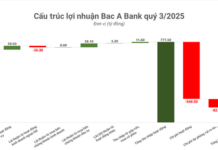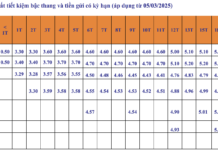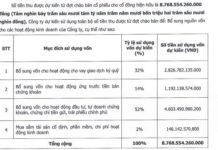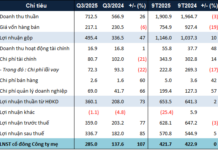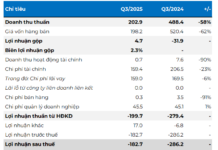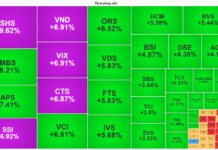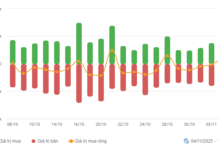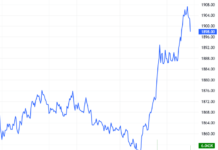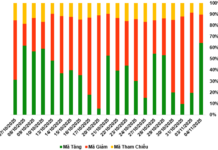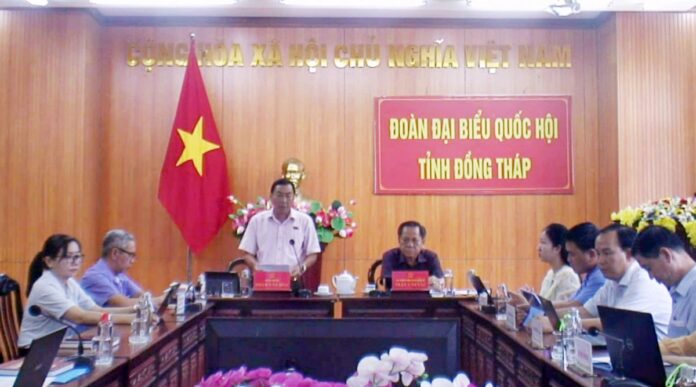During the 36th meeting of the National Assembly Standing Committee on August 21st, 2024, Deputy Pham Van Hoa of the Dong Thap delegation raised an issue regarding electricity pricing. He acknowledged the significant progress made in providing electricity for production and consumption, a stark contrast to the localized power shortages experienced in 2023 that caused public discontent.
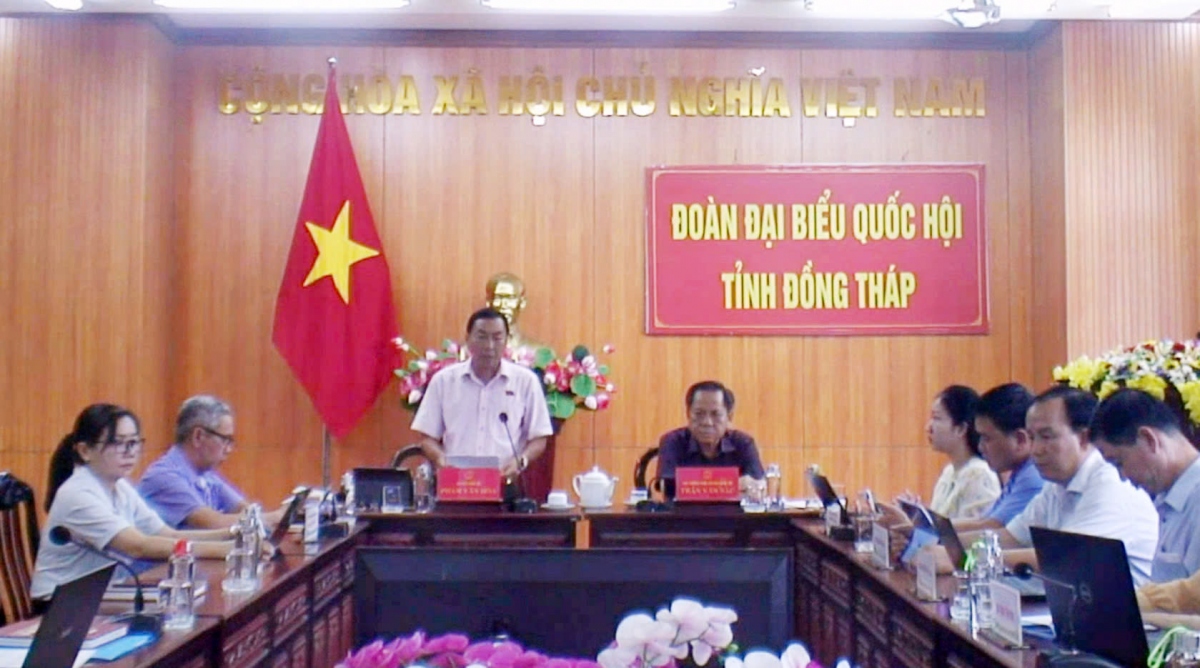
Deputy Pham Van Hoa raises an issue at the Dong Thap meeting point
However, he pointed out that the current tiered pricing structure is not aligned with the needs of the people, as the first tier only covers up to 50kwh for household consumption. Additionally, he highlighted that consumers, who already bear the cost of electricity, are also subject to a 10% VAT, which he deemed unreasonable.
“Can the Minister provide further explanation on this matter and consider exempting VAT or increasing the first tier from 50kwh to 100kwh for consumers?” the deputy asked.
In response, Minister of Industry and Trade Nguyen Hong Dien explained that tiered pricing is a common model adopted by many countries to encourage electricity conservation and promote social responsibility in environmental protection, as the energy sector is a major emitter.
In Vietnam, according to the 2014 Regulation 28, the average retail electricity price structure consists of six tiers. Following the National Assembly Standing Committee’s resolution, the Government directed the Ministry of Industry and Trade to take the lead in amending and supplementing this regulation.
As a result, the recently submitted draft to the Government proposes reducing the number of tiers from six to five and increasing the first tier from 0-50kwh to 0-100kwh.
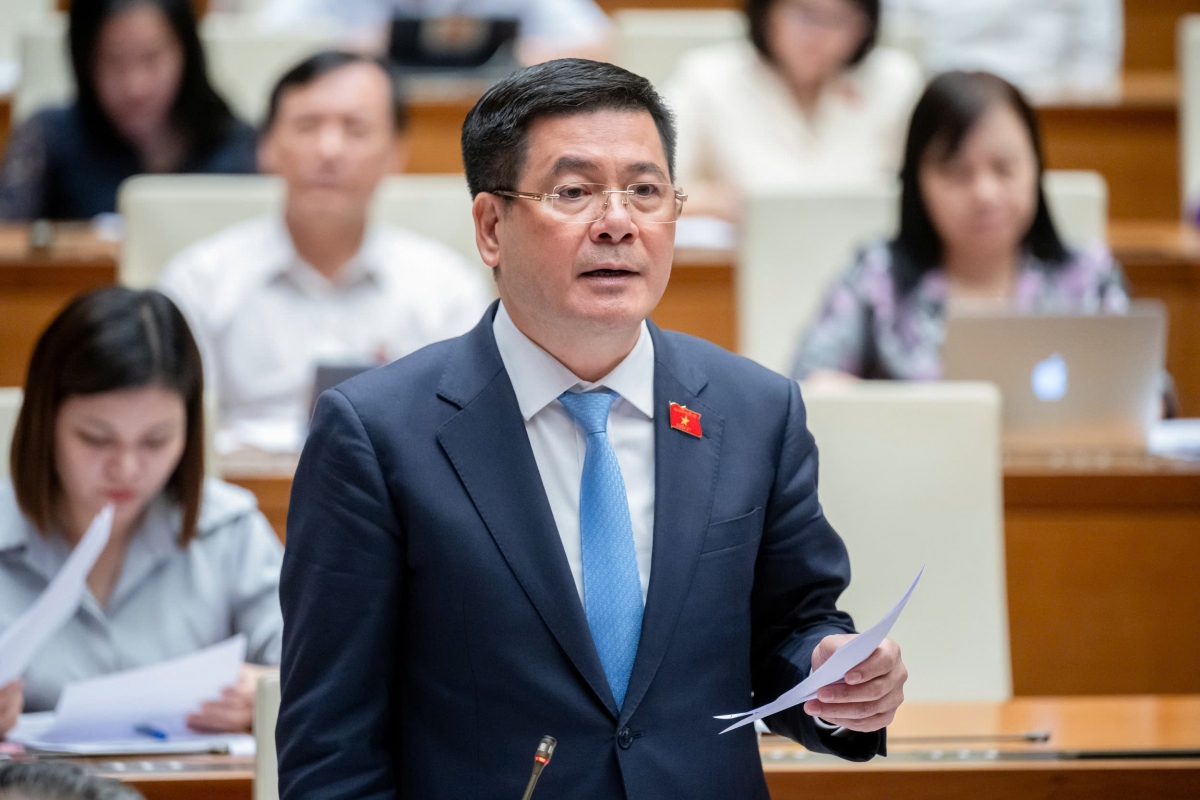
Minister of Industry and Trade Nguyen Hong Dien answers questions at the Diên Hồng Hall
“This proposal reflects the Government’s commitment to addressing the concerns raised by the deputy. The goal is to provide support to low-income households while maintaining financial assistance for those facing difficulties, covering up to 30kWh of electricity consumption,” added Minister Nguyen Hong Dien.
He also emphasized that the adjustments aim to gradually eliminate the unfair gap between different electricity consumer groups. Some production sectors will be adjusted accordingly to ensure alignment with pricing structures in the service and household sectors, thus avoiding cross-subsidization among consumer groups.
Regarding the deputy’s concern about VAT on electricity bills, Minister Nguyen Hong Dien responded, “To my understanding, this is a provision of the Tax Law applicable to all goods and services transactions. Therefore, I would like to request the Minister of Finance to provide a clearer answer on the possibility of removing this tax from electricity bills.”
Two-Part Electricity Tariff: Promoting Transparency and Fairness
In addition to creating transparency and fairness in buying and selling electricity, when applying the 2-component electricity price, which is based on capacity and electricity consumption, it also helps to save electricity naturally.
The Energy Bill Blues: How Ho Chi Minh City Residents Are Winning the Battle Against Soaring Costs.
As reported by Ho Chi Minh City Electricity Corporation, residential electricity consumption witnessed a decline in July 2024 compared to the preceding months marked by scorching heat waves.







